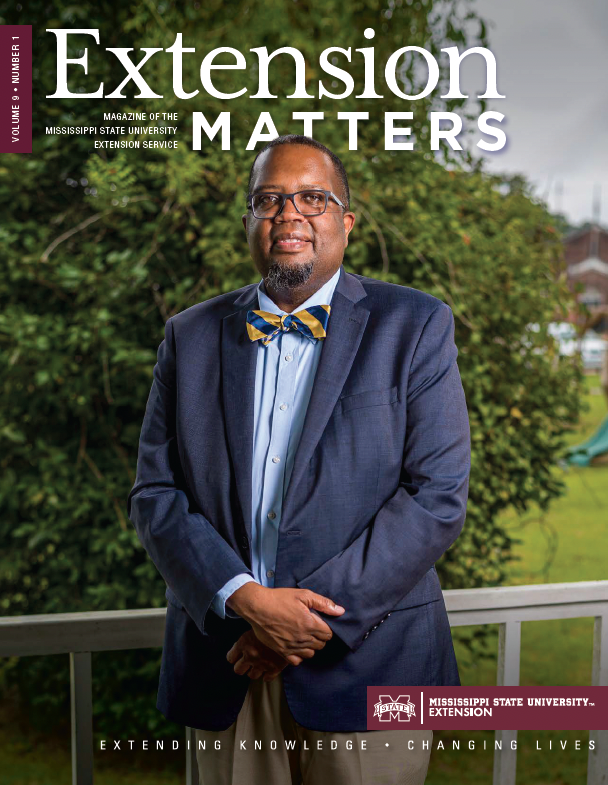Giving Them Wings

Courtney and Kathryn Reed, founders and directors of I Can Fly Ministries
Extension training helps mentoring ministry better support teens
Story by Susan Collins-Smith • Photo by Kevin Hudson
When Kathryn Reed saw that young people in her community needed more opportunities to participate in activities to help them grow spiritually and personally, she took action.
If you or someone you know is in crisis, call the Suicide and Criss Lifeline at 988.
The Mental Health First Aid action plan has five steps, which can be used in any order.
A – Approach; assess for risk of suicide or harm.
Try to find a suitable time or place to start the conversation with the person, keeping their privacy and confidentiality in mind. If the person does not want to confide in you, encourage them to talk to someone they trust.
L – Listen nonjudgmentally.
Many people experiencing a challenge or distress want to be heard first, so let the person share without interrupting them. Try to have empathy for their situation. You can get the conversation started by saying something like, “I noticed that …” Try to be accepting, even if you don’t agree with what they are saying.
G – Give reassurance and information.
After someone has shared their experiences and emotions with you, be ready to provide hope and useful facts.
E – Encourage appropriate professional help.
The earlier someone gets help, the better their chances of recovery, so it’s important to offer to help the person learn more about the options available to them.
E – Encourage self-help and other support strategies.
This includes helping them identify their support network, locate programs within the community, and create a personalized emotional and physical self-care plan.
Visit National Council for Mental Wellbeing for more information about ALGEE.
Click here to learn more about or sign up for Mental Health First Aid training.
“We have a lot of activities for adults in our community, but there was nothing for our pre-teens and teenagers,” explains Kathryn. “We are losing them when they get to that age.”
In 2007, she and her husband, Courtney Reed, decided they could make a difference. That year, they founded I Can Fly Ministries, a Christian mentoring program that provides cultural, spiritual, and civic activities to youth from different communities, churches, and schools.
The couple’s main goal is to share their Christian faith and help young people build their own foundation of faith.
“I wanted to offer a Bible study when we started, but I knew I needed a way to draw them in and keep them coming,” Kathryn continues. “We decided to offer ministry-based arts. We started with dance, mime, and poetry activities. That got them in the door. Then, we had the opportunity to understand what each child really needed.”
As they learned more about the children who participated in their ministry, they began to expand the program. Little by little, they added more team members and grew the small mentoring program into a nonprofit organization that has provided hundreds of young people with tools to improve their academic performance, as well as to learn about volunteerism and leadership skills. The ministry partners with other like-minded organizations and leaders in the region, state, and nation.
I Can Fly Ministries offers art workshops and educational and community service opportunities, including painting, sewing, ACT workshops, CPR training, culinary workshops, and physical fitness. They also offer life skills training, including résumé writing and interviewing, along with various service projects, such as Operation Shoebox and homeless shelter ministering.
Not long after the program began, the Reeds realized there was a need for mental health support among some of the program’s attendees.
“That was something we weren’t expecting,” says Kathryn, a dental hygienist who now manages the Mississippi division of an information technology development and medical staffing service. “Parents would call us asking for our help and advice, and we were really unsure sometimes about how to help them.”
Then, they heard about Youth Mental Health First Aid training. Offered through the Mississippi State University Extension Service, the training is specifically designed to teach adults how to help young people ages 12 to 18 who experience a crisis or challenge related to mental health or addiction.
“A few years ago, I wanted to start offering something on suicide prevention. Over the years, we’ve had everything come through,” reflects Kathryn about the mental health challenges she and Courtney have seen teens experience. “We were asking ourselves, ‘How do we deal with this? How do we help them?’”
They, along with all their adult leaders, got answers to those questions and more in the training, which covers common mental health challenges for youth, reviews typical adolescent development, and teaches a five-step action plan for how to help young people in both crisis and non-crisis situations. Training topics include anxiety, depression, substance use, eating disorders, disorders that can cause psychosis, and disruptive behavior disorders, including ADHD.
“The training has helped us better understand how to help them, including different ways to approach them,” relates Courtney, a firefighter, paramedic, and training officer with the Vicksburg Fire Department. “The number-one thing that was really valuable was learning about all the resources that we could refer them to.”
Extension offers both Youth and Adult Mental Health First Aid training to the public. Each is a 6-hour course and is available virtually or in person.


